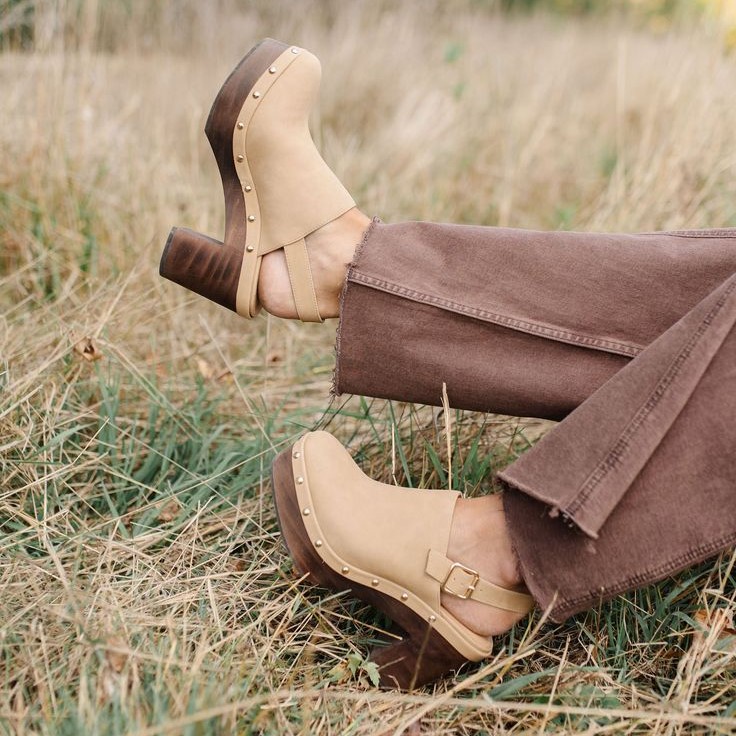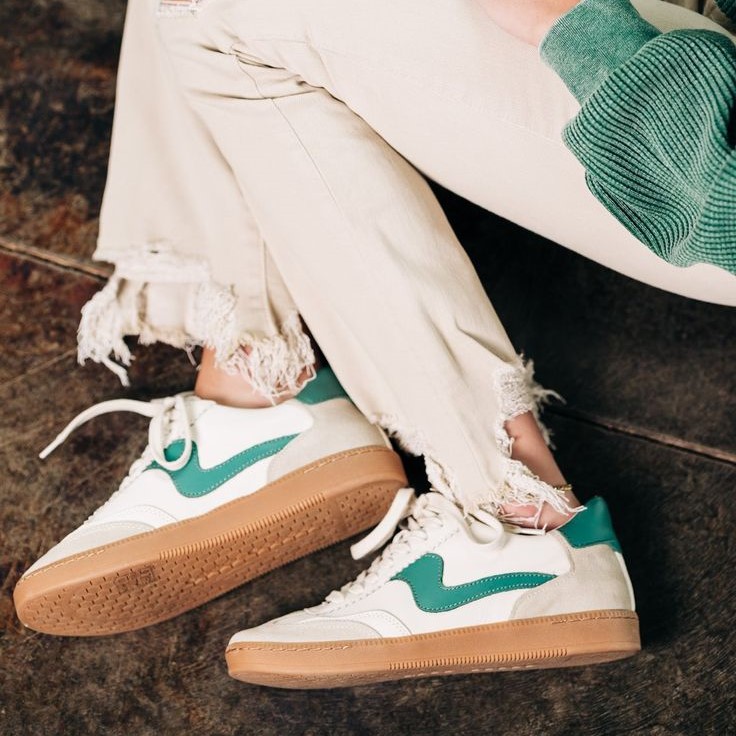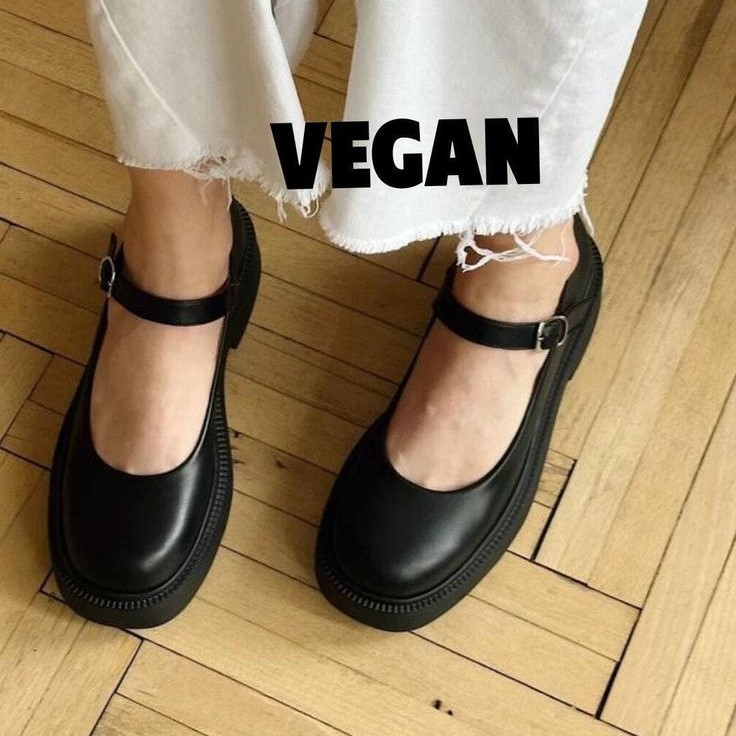Introduction: The Rise of Vegan Shoes
As the awareness of environmental issues and animal welfare continues to grow, more people are asking, what are vegan shoes? Vegan shoes are footwear made entirely without animal products, becoming a key player in the movement towards sustainable fashion. Consumers increasingly seek out alternatives to traditional footwear options, aiming for styles that are ethical and eco-friendly. This article will examine vegan shoes’ definition, their benefits, the materials used, and the latest trends. By the end of this guide, you will understand how vegan shoes can fit into your lifestyle while making a positive impact on the environment.

What Are Vegan Shoes?
What are vegan shoes? Vegan shoes are designed without the use of any animal-derived materials. This includes popular materials such as leather, suede, and fur. Instead, they are crafted from high-quality synthetic fabrics or innovative plant-based materials.
1. Materials Used in Vegan Footwear
Different materials give vegan shoes their distinctive look and feel.
- Synthetic Fabrics: Many vegan shoes rely on synthetic materials like polyurethane (PU), PVC, and microfiber. These materials can mimic the appearance and texture of leather while being free from animal-derived substances.
- Plant-Based Materials: Increasingly, brands are turning to environmentally friendly options such as cork, organic cotton, or even innovative materials like pineapple leather (Piñatex) and mushroom leather (Mylo). These alternatives provide a sustainable option without compromising style or comfort.
2. The Style Spectrum
Vegan footwear comes in various styles to suit different tastes.
- Casual Shoes: Sneakers and casual flats made from vegan materials are widely available, offering both comfort and style for everyday wear.
- Formal Options: Vegan alternatives for heels, dress shoes, and boots have emerged, ensuring those looking for elegant options can still make ethical choices.
Benefits of Choosing Vegan Shoes
Selecting vegan shoes is a powerful choice that carries several important benefits.
1. Animal Welfare
- Ethical Considerations: By choosing vegan shoes, consumers contribute to the elimination of animal cruelty associated with traditional leather production. This decision aligns with compassionate values, fostering goodwill in the fashion industry.
- No Animal Products: The absence of animal materials means that no harm comes to animals during the production process, allowing for more ethical consumption.
2. Environmental Impact
- Sustainable Practices: Many vegan shoe brands prioritize sustainable manufacturing processes and use eco-friendly materials, contributing to a reduced carbon footprint. By using less water and producing less waste, these companies help protect valuable resources.
- Recyclability: Several vegan materials can be recycled more easily than traditional leather, leading to less waste in landfills and a reduced overall environmental impact.
3. Health and Comfort
- Breathability: Many vegan materials allow for adequate airflow, making the shoes comfortable to wear for extended periods. Breathable shoes contribute to foot health by reducing moisture buildup.
- Hypoallergenic Options: Vegan shoes are often made from synthetic materials that do not pose allergy risks for those sensitive to animal products. This characteristic makes them a pleasurable choice for many individuals.
Popular Brands Offering Vegan Shoes
The rise of interest in vegan shoes has led to numerous brands committed to producing ethical footwear options. Here’s a peek at some popular brands in the market.
1. Established Brands
Several well-known footwear companies have launched vegan lines or collections that align with these principles.
- TOMS: Originally known for their espadrilles, TOMS offers a variety of vegan shoe options, ensuring each pair represents their commitment to social responsibility.
- Vegan-Specific Brands: Companies like Veja and Will’s Vegan Store focus exclusively on vegan footwear, providing a range of stylish and sustainable options for consumers.
2. Emerging Brands
The increase in demand for vegan footwear has given rise to many new brands that offer innovative and eco-friendly designs.
- Ecco and Vagabond: These brands push boundaries in combining style with sustainability while providing a variety of stylish casual and formal footwear.
- Crowdfunded Labels: Many startups utilize crowdfunding to launch new vegan shoe lines. This model allows creatives to bring fresh ideas to the market and reinforces the importance of sustainable materials.
The Future of Vegan Footwear
The future of vegan footwear looks bright, with exciting innovations on the horizon.
1. Advancements in Sustainable Materials
- Biomaterials: Researchers are continually experimenting with new organic materials that can serve as viable alternatives to animal products. Innovations like apple leather made from apple waste and algae-based foams showcase how sustainable practices can be integrated into fashion.
- 3D Printing: As technology advances, 3D printing is becoming a common method for manufacturing shoes. This reduces waste and allows brands to create custom-fit vegan footwear.
2. Evolving Fashion Trends
- Mainstream Acceptance: Vegan footwear is gaining traction, transcending niche markets to become embraced by mainstream fashion. As more consumers advocate for ethical choices, the demand for stylish, eco-friendly options will likely expand.
- Inclusivity in Design: Brands are focusing on inclusivity, creating shoes that cater to a broader range of body types and sizes. This effort ensures that all consumers can find stylish vegan options that suit their needs.
How to Choose the Right Vegan Shoes for You
When shopping for vegan shoes, keep the following considerations in mind to find the perfect pair.
1. Identify Your Needs
- Usage: Consider when and where you will wear the shoes. From casual outings to formal occasions, different styles will suit different needs. Identifying your primary use will help narrow down options.
- Comfort Level: Ensure the right fit by trying on various pairs. Comfort is paramount when it comes to choosing footwear, especially if you’ll be wearing them for extended periods.
2. Research Brands and Products
Company Values
- Alignment with Ethical Beliefs: It is essential to investigate brands before making a purchase to ensure they resonate with your ethical beliefs. Understanding a company’s mission and values helps you make informed decisions that reflect your own principles.
- Sustainability Commitment: Look for companies that prioritize sustainable practices in their production processes. This includes using environmentally friendly materials, minimizing waste, and implementing ethical labor practices. Brands that commit to sustainability often have programs in place that focus on reducing their carbon footprint and promoting responsible sourcing.
- Transparency: Transparency in business practices is crucial. Companies should be open about their supply chain, manufacturing processes, and sourcing of materials. This openness not only builds trust with consumers but also allows you to assess the ethical implications of your purchase. Look for brands that provide detailed information on how and where their products are made.
- Animal Welfare: Aligning with brands that demonstrate a commitment to animal welfare is vital for those selecting vegan products. Ensure the companies you consider do not use any animal-derived materials in their footwear and actively promote animal rights. Brands that support animal welfare often engage in advocacy and education, contributing positively to the community.
Read Reviews
- Customer Insights: Customer reviews can be an invaluable resource when selecting vegan shoes. They provide genuine feedback from individuals who have already purchased and worn the products, helping you understand the real-world performance of shoes.
- Product Quality Assessment: Reviews often address the overall quality of the vegan shoes, including the durability and materials used. This information can alert you to potential issues, such as whether the shoes wear down quickly or maintain their form over time.
- Fit and Comfort: One of the most common concerns for consumers is the fit and comfort of footwear. Customer reviews typically include insights into sizing accuracy and support. This feedback can help you navigate sizing issues, ensuring you choose shoes that will feel comfortable throughout the day.
- Guidance on Choices: Beyond just one-off experiences, aggregated customer reviews can reveal trends about particular models or styles. For example, you may notice that a specific style consistently receives high ratings for comfort or that many users praise a certain feature, such as breathability or ease of cleaning. This collective feedback can guide you toward the best options for your needs.
Conclusion: Embracing Vegan Footwear Choices
In conclusion, understanding what are vegan shoes expands your options in sustainable and ethical fashion. These stylish and responsible footwear choices reflect a growing movement towards eco-friendly practices. As the demand for vegan shoes increases, so does the variety and quality available, making it easier than ever to find the right pair for your lifestyle. By prioritizing sustainable materials and brands that align with your values, you can make informed choices that positively impact the planet.

Embrace the world of vegan footwear, knowing that each step you take helps promote compassion, sustainability, and ethical consumption. With so many stylish options at your fingertips, your journey into vegan fashion is not just a trend—it’s an impactful lifestyle choice that can change the world one pair of shoes at a time!


